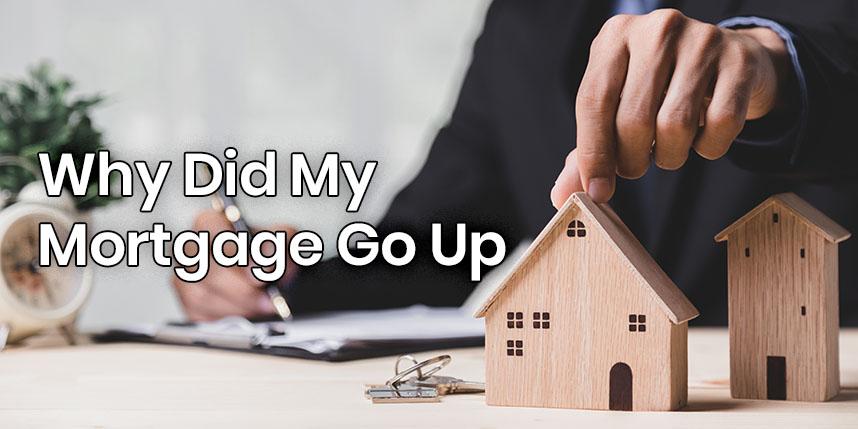Have you recently opened your mortgage statement only to find your monthly payment has increased by a staggering $1,000 or more? If so, you’re not alone. Many homeowners have experienced similar heart-stopping moments when confronted with a sudden and substantial spike in their mortgage payments. While it’s understandable to feel alarmed, there are several common reasons that could explain this drastic increase. Let’s unravel the mystery and shed light on why your mortgage payment might have taken such a dramatic turn.
The Culprit: Escrow Account Adjustments
One of the primary reasons for a significant increase in your mortgage payment is likely due to changes in your escrow account. This account is used by your lender to pay your property taxes and homeowners insurance premiums on your behalf. When these expenses rise, your escrow account may not have enough funds to cover the increased costs, resulting in what’s known as an “escrow shortage.”
To remedy this shortage, your lender will spread the deficit over the next 12 months by increasing your monthly mortgage payment. This adjustment ensures that enough money is collected to cover the higher property taxes and insurance premiums when they become due.
Here’s a breakdown of how an escrow shortage can lead to a substantial mortgage payment increase:
-
Property Tax Hike: Local governments periodically reassess property values, which can lead to higher property tax bills. If your home’s assessed value has increased significantly, your property taxes may have spiked, causing an escrow shortage.
-
Homeowners Insurance Premium Increase: Insurance companies also review and adjust their rates regularly. If your homeowners insurance premium has gone up, it can create an escrow deficit that needs to be addressed through higher monthly payments.
-
Underestimated Escrow Payments: In some cases, your escrow payments may have been miscalculated or underestimated initially, leading to an ongoing shortage that needs to be corrected.
While escrow account adjustments are the most common culprit behind substantial mortgage payment increases, there are a few other potential reasons worth exploring.
Other Possible Causes
-
Adjustable-Rate Mortgage (ARM) Reset: If you have an ARM, your interest rate is subject to periodic adjustments based on market conditions. When the initial fixed-rate period ends, your rate may have increased, leading to a higher monthly payment.
-
Removal of Mortgage Insurance: If you’ve reached the required equity threshold (typically 20% for conventional loans), your lender may have removed the private mortgage insurance (PMI) premium from your payment. While this ultimately saves you money, the initial removal can cause a temporary spike in your monthly payment.
-
Escrow Account Replenishment: In some cases, your escrow account may have been depleted due to a missed payment or an unexpected expense. To replenish the account, your lender may temporarily increase your monthly payment until the account is back on track.
-
Loan Modification or Refinance: If you’ve recently modified your existing mortgage or refinanced to a new loan, the terms and conditions of the new arrangement may have resulted in a higher monthly payment.
What Can You Do?
If you’re facing a substantial increase in your mortgage payment, it’s essential to take action promptly. Here are some steps you can take:
-
Review Your Escrow Statement: Request a detailed escrow statement from your lender to understand the specifics of the increase. This statement should outline the changes in property taxes, insurance premiums, and any existing shortages or overages.
-
Discuss Your Options: Contact your lender to discuss potential solutions, such as paying the shortage in a lump sum or spreading it over a longer period to reduce the monthly impact.
-
Shop Around for Better Rates: If the increase is due to higher homeowners insurance premiums, explore other insurance providers to see if you can find a better rate.
-
Refinance or Modify Your Loan: If the increase is related to an ARM reset or other loan terms, consider refinancing to a more favorable mortgage product or modifying your existing loan to lower your monthly payment.
-
Seek Assistance: If you’re struggling to make your mortgage payments due to the increase, reach out to your lender or a housing counselor to discuss potential relief options or alternative solutions.
While a significant increase in your mortgage payment can be unsettling, understanding the reasons behind it can help you take appropriate actions. By staying informed, communicating with your lender, and exploring your options, you can regain control over your housing costs and ensure a more manageable financial situation.
I Have a Fixed Rate Mortgage. Why Did My Payment Go Up?
FAQ
Why did my mortgage payment go up $1,000?
Why did my mortgage payment go up if I have a fixed rate?
How much does your mortgage go up per 1000?
Why is my mortgage going up because of escrow?

